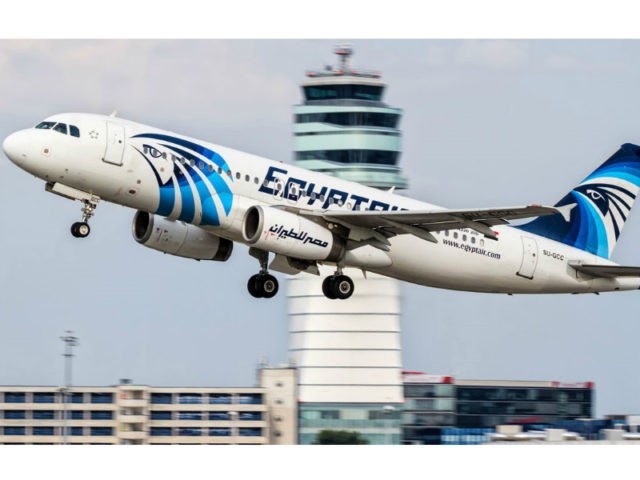Egyptian officials have contradicted reports from Greece that EgyptAir Flight 804 made a set of dramatic maneuvers before apparently exploding in midair.
CNN recalls an early report from Greek Defense Minister Panos Kammenos that the plane swerved “90 degrees left, and then 360 degrees” shortly after entering Egyptian airspace at 37,000 feet. After these turns, the plane reportedly dropped to 15,000 feet before vanishing from radar.
However, the administrative board chairman of Egypt’s National Air Navigation Services Company, Mohi El-Din Azmi, said on Sunday that the plane did not swerve or descend before disappearing from radar.
“The decisive information is going to come from the black boxes, and they have not been retrieved yet,” said EgyptAir vice chairman Ahmed Adel on Tuesday.
Adel also noted the search area for plane debris was “about the size of Connecticut,” so it may be some time before larger portions of the fuselage or the black boxes are recovered. Unfortunately, CNN notes that the water is up to 10,000 feet deep in the area, and the transponder batteries in the black boxes are running out.
He said it was too early to determine why the plane came down, arguing that the discovery of small fragments of debris and human remains were not conclusive proof of an explosion because “any high velocity impact leads to defragmentations.”
Reuters quotes a similar disclaimer from the top Egyptian forensic official, who said 23 bags of body parts have been collected so far, “the largest no bigger than the palm of a hand.” However, at least one lower-ranked Egyptian official did think the condition of the remains pointed to an explosion.
There seems to be a bit of tension between Egypt and Greece over the investigation, as Greek officials are still standing by their initial report of the plane swerving and diving before it was lost from radar. According to Reuters, Egypt is “seeking transcripts of calls between the pilot and Greek air traffic control, and wants Greek officials to be questioned about whether the pilot sent a distress signal.”
“Egypt’s public prosecutor has also asked France for documents, audio and visual records of the plane’s stopover at Charles de Gaulle airport and the period before it left French airspace,” Reuters writes.
Investigators have been working with incomplete data transmitted by the plane during its last minutes of flight, including log entries that suggested smoke alarms going off in the forward lavatory and the electronics bay beneath it. These fault indications are described as too sparse to indicate a major fire raging through the plane, but too numerous to suggest a single explosion took the plane down.
CNN reports that the families of French passengers are urging their government to get more involved in the investigation and put pressure on the Egyptians because they don’t entirely trust the Egyptian government’s investigation.
This is partially due to lingering memories of poor Egyptian cooperation in previous incidents, including the crash of a Russian Metrojet in October. The UK Daily Mail reports that the once-thriving tourist industry in Sharm el-Sheikh has been “brought to its knees” by the double blow of the Metrojet and EgyptAir disasters, with five-star hotel rooms discounted from hundreds of pounds to as little as 18 pounds per night.
One travel expert told the Daily Mail that a further event could put the tourist industry “on its back, rather than its knees.”
The UK Mirror notes that 10 percent of Egypt’s population is employed in tourism, which was down 46 percent even before the EgyptAir crash. The Mirror’s reporters were unable to find any other Britons in Sharm el-Sheikh, despite a search intensive enough to get them arrested by suspicious Egyptian police.

COMMENTS
Please let us know if you're having issues with commenting.